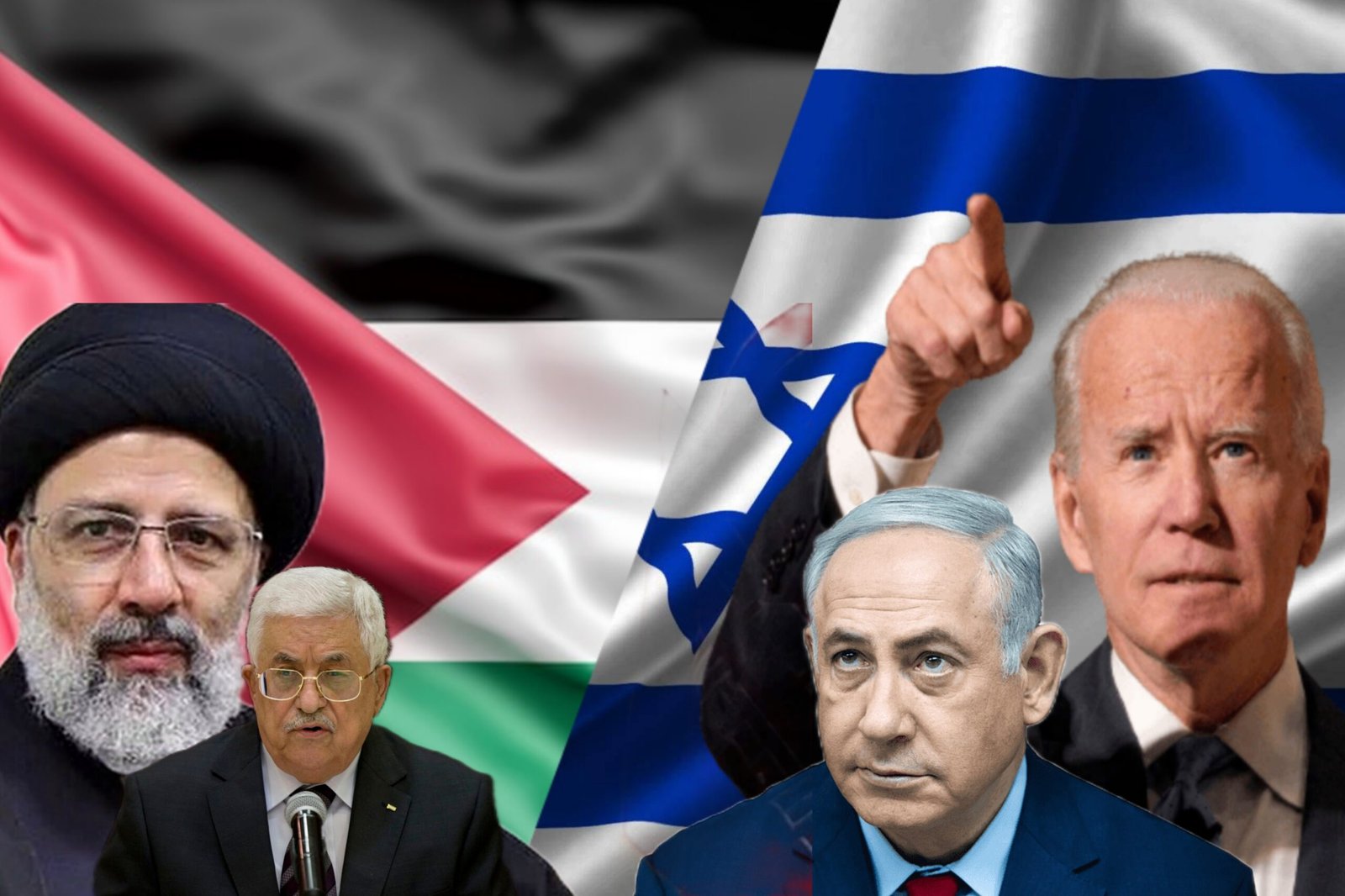The October 7 attack on Israel by Hamas terrorists has once again pushed the Middle Eastern region towards major escalation. As of now, Israel has started its retaliatory attack against Hamas in Gaza Strip with the Western countries giving full freedom to Israel’s right to defend itself. Possibilities are high that this war may start on multiple fronts against Hezbollah in the North, Jordan in the East, and direct confrontation with Iran.
So the multiple questions arise is Israel capable of defending itself on multiple fronts? What would lead to escalation? How would this war change the political equations in the Middle East? How to avoid escalation? Before I answer these questions, let us look at a brief history of Israel and its wars in the past.
Table of Contents
History

After the defeat of the Ottoman Empire in World War 1, the Ottoman Empire was divided among Allied powers giving Britain the mandate to administer Palestinian territory west of River Jordan. The rise of Palestinian Arab nationalism and the increase in the population of Jews in Palestine due to their exodus from Germany to Palestine to save themselves from the atrocities of Hitler gave rise to tensions between Arabs and Jews. Britain failed to resolve this crisis and ceded its administering rights to the UN.
In 1947 United Nations General Assembly approved the Two-state solution for the peaceful settlement of the question of Palestine. Israel accepted the plan on 14 May 1948 but Arab leaders rejected the plan and the following day five Arab countries Egypt, Syria, Jordan, Iraq, and Saudi Arabia attacked Israel and Israel won the war by capturing 50% of Arab state land.
In 1967 the famous ‘Six Day War’ broke out between Israel on one side and Egypt, Syria, Iraq, and Jordan on the other side. Israel once again won the war and captured the West Bank (including East Jerusalem) from Jordan, the Golan Heights from Syria, and the Sinai and Gaza Strip from Egypt. This war brought significant changes to the map of Israel.
In 1982 Israel struck a treaty with Egypt by accepting pulled-out troops from the Sinai region of Egypt. So the question of whether Israel has the capacity and capability to fight on multiple fronts has already been answered in the past and today’s Israel with the backing of the USA is far more powerful and advanced than it was in 1967.
Possibility of escalation
There is a high possibility of escalation but so far this war is under control, whether it would ignite the Middle East or not is a question to be answered. For countries in the Middle East, the expanded war is not in their interests. Middle Eastern countries are improving their regional relations and war will be the greatest hurdle in that process.
When it comes to Iran it is completely a different player in the game because Iran and Israel for decades have been engaged in a Shadow War with Iran using Hezbollah and militant groups as a proxy to attack Israel and Israel attacking these proxies in Syria and Iraq. It is a well-known fact that Iran provides financial aid, military assistance, and training to Hamas, but when asked about the possible Iran hand in the October 7 terrorist attack on Israel both the USA and Israel rejected any kind of role of Iran. Iran also did not claim any responsibility but it celebrated the attack.
This shows that neither Iran nor Israel at this stage wants to engage in any kind of military confrontation with each other and that makes sense because Israel now is completely focused on eradicating Hamas from Gaza. The USA has already deployed Aircraft carriers in the eastern Mediterranean to deter Iran from engaging in any escalation.
Hezbollah in Lebanon had attacked Israel with missiles at the border area to show solidarity with Palestine and Israel in retaliation attacked southern Lebanon but to prevent the opening of a second front with Hezbollah Israel ordered an evacuation of villages from the border area to reduce civilian casualties.
Biden administration understands the risks and rightly started the backchannel diplomacy with Iran and other players in the region. Israeli forces have surrounded the northern Gaza border and are awaiting political confirmation to launch a ground invasion of the Gaza Strip. Will Iran or Hezbollah hold themselves back when Israel starts a ground invasion of the Gaza Strip? Is difficult to answer.
How to avoid escalation?
The way or ways to avoid escalation are eradicating Hamas, accepting a two-state solution and a ceasefire. The only goal of Israel for now is to annihilate Hamas from the Gaza Strip and this is not possible in case of a ceasefire. The USA has also rejected the idea of a Ceasefire as it would help Hamas accumulate ammunition and prepare for another attack. When it comes to a two-state solution Israel has already accepted it.
So to avoid escalation or spreading of this war in the region dialogue and diplomacy are the only ways out. Biden administration understands the risks and rightly started the backchannel diplomacy with Iran and other players in the region.
Even the visits of Rishi Sunak, Antony Blinken, Joe Biden, and Emmanuel Macron in the region are an indication that the USA and its allies are trying to contain the war by engaging in dialogue with neighbouring countries of Israel.
silent spectators
Russia and Iran’s friendship is well known to the world Iran sends drones to Russia to be used against Ukraine and Russian President Vladimir Putin visited Iran last year. Russia also proposed a draft resolution on the situation in Gaza that called for a ceasefire but did not mention the militant group Hamas which carried out a terrorist attack on Israel. The USA used its veto power to reject the draft.
Russia would be happy to see the Middle East getting destabilized as it would draw away the focus of the world from Ukraine war and would increase the crude oil prices.
China would not like to see the Middle East getting destabilized as it would disrupt the supply of crude oil to China but China would be happy to see a weakening of the USA’s position in the region.
Russia and China are in a position to wait and watch.
Political equations
the Israel-Palestine conflict has long been a geopolitical fault line in the Middle East. Its resolution or escalation would undoubtedly reshape the political equations in the region, affecting alliances, stability, and the global balance of power. The exact impact would depend on the nature of the change, but the Middle East remains highly sensitive to developments in this enduring conflict.
Groups like Hamas and Hezbollah are deeply involved in the conflict. A resolution or escalation could affect their strength and actions, potentially destabilizing the region. The biggest winner in case of escalation would be Iran as this war would impede the normalization progress between Israel and the Arab world.
A resolution could influence global power dynamics, particularly in the context of superpower rivalries like those between the U.S. and Russia or the U.S. and China.
